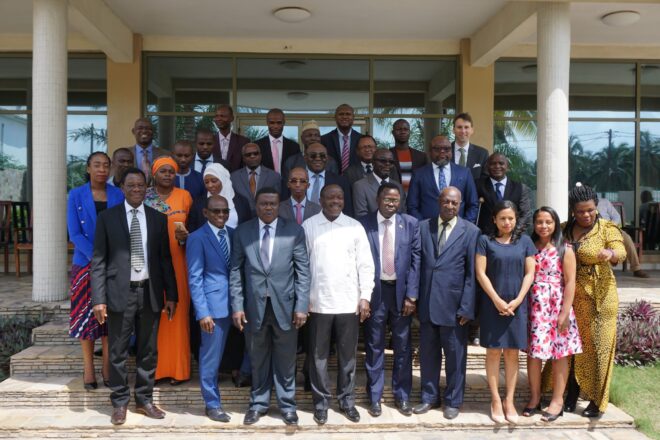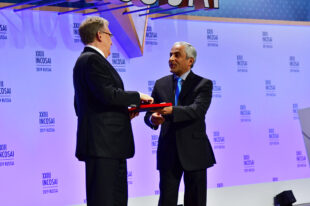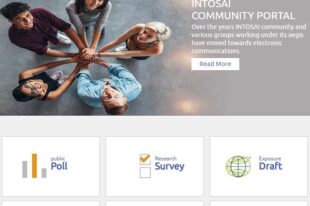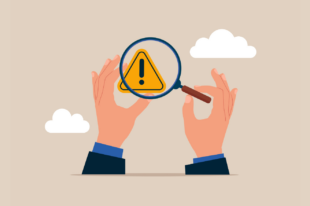Nine SAIs in Challenging Contexts Poised for Greater Performance

by Einar Gørrissen, Director General of INTOSAI Development Initiative; Mrs. Meisie Nkau, Chief Executive Office of AFROSAI-E; and M. Hassan, Chief Executive Office of CREFIAF
In 2017, the INTOSAI-Donor Cooperation established the Global Call for Proposals Tier 2 as a collective INTOSAI and Donor effort to mobilize strategic and scaled-up support for the most challenged Supreme Audit Institutions (SAIs). The SAIs that joined the initiative—from the Democratic Republic of Congo (DRC), Eritrea, Guinea, Madagascar, Niger, The Gambia, Togo, Sierra Leone, and Zimbabwe—expressed a clear ambition to work systematically to strengthen their performance.
However, in the early stages, it was an open question how the initiative would work in practice and what results it would achieve. Now, almost four years later—as the first phase of support comes to a close—we know the answer: All nine participating SAIs have taken key steps to strengthen their strategic management and engage partners for long-term support.
Since 2018, the Accelerated Peer-support Partnership (PAP-APP) program—a partnership of the INTOSAI Development Initiative (IDI), African Organization of English-speaking SAIs (AFROSAI-E), and Regional Council for the Training of SAIs of Sub-Saharan Francophone Africa (CREFIAF)— has supported the SAIs in these efforts. In spite of the difficult contexts and negative impact of COVID-19 in the latter part of the program, the SAIs have:
- Developed new, results-oriented strategic plans
- Strengthened operational planning, monitoring, and reporting
- Developed external support plans and project proposals
- Engaged potential donors and technical partners, and secured long-term and scaled-up support (or expect to do so in the near future)
In the CREFIAF region:
- SAI Niger conducted robust stakeholder outreach, and in early 2020 was able to secure funding for long-term support from the European Union.
- SAI DRC has involved a larger number of staff in strategic planning, and conducted several inclusive partner meetings during the pandemic. Scaled-up support is being prepared by several partners, including IDI with funds from the Norwegian government.
- Togo’s Court of Accounts engaged the media actively during a joint project-planning workshop in Lomé, and completed an ambitious strategic plan. A dialogue on scaled-up support is ongoing with donors.
- SAI Guinea completed an ambitious strategic plan, attracted several interested donors and technical partners, and secured funding for digitalization from the African Development Bank.
- Madagascar’s Court of Accounts met its planned Phase 1 milestones and attracted major funding from the United States Agency for International Development (USAID) for a comprehensive peer project.
In the AFROSAI-E region:
- The Office of the Auditor General of Eritrea successfully launched its strategic plan publicly and issued excellent reports on its implementation. Dedicated multiyear peer support led by AFROSAI-E has been agreed upon, with other funding anticipated.
- The Office of the Auditor General of Zimbabwe introduced partner meetings at an early stage of the cooperation and has attracted a number of partners, including dedicated funding through the United Nations Development Program (UNDP).
- The National Audit Office of The Gambia developed an innovative peer support project based on its strategic plan, as well as a strong general support framework, in which different donors and partners support key strategic priorities of the SAI.
- Audit Service Sierra Leone launched its innovative new strategic plan, which provides a solid basis for the current dialogue on scaled-up support from a global donor.
Some of the key lessons learned during the Phase 1 of the PAP-APP Program—which has been externally evaluated—include:
- The overall design and implementation strategy seems to have worked well, including customized support for the individual SAIs, a dedicated peer support team, and involvement and ownership of SAI staff and top management throughout the project.
- The recognition that it takes more than two years to mobilize the necessary funding and peer support for all SAIs. It has proven more challenging than expected to facilitate active project support groups comprising interested donors, technical partners, and the SAI in each country. Scaled-up support has been difficult to mobilize for a variety of reasons, such as SAI and donor readiness, partner interaction, and country context.
- A partnership approach benefits all. IDI, CREFIAF, and AFROSAI-E have all benefitted from working together, learning from each other, and drawing on the comparative advantages of each organization.
- While participating SAIs have demonstrated real ownership and commitment, prioritizing enhancement of strategic management systems and mobilizing external support can still be quite challenging. As SAIs have limited resources and significant audit responsibilities, it is critical to match the support to the absorption capacity of the SAI, and to ensure SAIs can continue to carry out their audit work.
These insights will prove valuable for the next round of the Global Call for Proposals Tier 2.
Phase 1 has now ended for the nine SAIs. During Phase 2, each SAI will be supported in different ways, through country-specific projects involving different types of partners and funding arrangements. The PAP-APP partners will continue with an overarching program, as well as leading some country projects. For further information, see the PAP-APP program page here.
For information about activities in each SAI, see the country pages:
- Democratic Republic of the Congo
- Eritrea
- The Gambia
- Guinea
- Madagascar
- Niger
- Sierra Leone
- Togo
- Zimbabwe
The PAP-APP Program has been supported by funding from the Austrian Development Agency; Icelandic Ministry of Foreign Affairs; French Ministry of Europe and Foreign Affairs; UK Foreign, Commonwealth & Development Office; SAI Qatar; Irish Aid; and the European Union.





